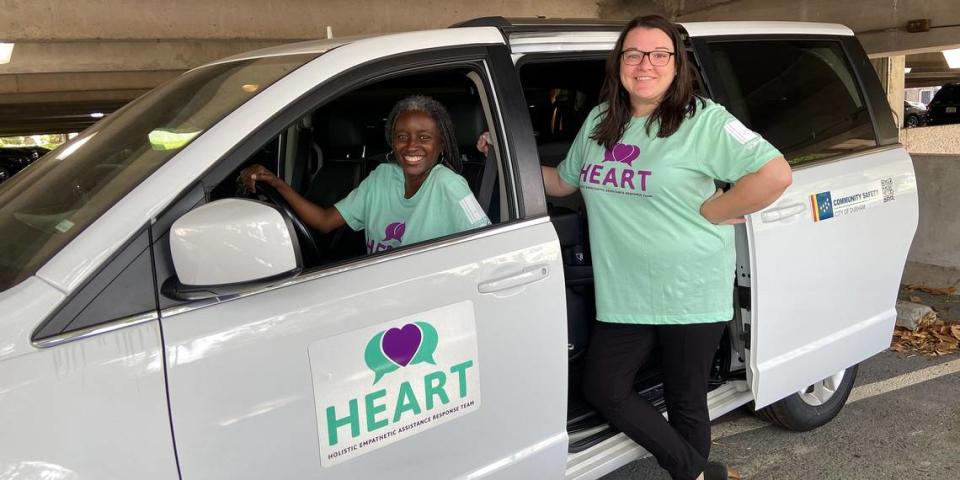CNN’s Sanjay Gupta visits Durham to showcase the Bull City’s HEART initiative
- Oops!Something went wrong.Please try again later.
One of CNN’s best-known reporters visited Durham last week to feature a new initiative that’s changing how the city responds to people in mental health emergencies.
The network aired a piece by chief medical correspondent Sanjay Gupta on the HEART program Friday morning.
The city has staffed the 911 center with mental health professionals and been sending teams of unarmed professionals into the community since the summer.
The goal of HEART — Holistic Empathetic Assistance Response Teams — is twofold: to help reduce potentially dangerous conflicts with police and to link residents with resources that will help them recover.
The latest data shared by the city shows out of 408 responses, the HEART teams felt safe 100% of the time.
Most of the calls have been for trespassing, welfare checks and mental health crises.
More than two-thirds of responses have been for Black and African Americans, the group that national statistics show is most likely to be shot and killed by police.
“I’ve got to tell you, I really enjoyed going along on those ride-alongs with that team. It’s really gratifying work helping people who really need help,” Gupta said at the anchor’s desk after the piece aired.
Gupta was in Durham last Thursday. The city posted a video on Instagram that showed 911 Center Assistant Director Tangela Walker crying upon meeting him.
‘Everyone’s a neighbor’
The five-minute segment started off with a 911 call and a Gupta voiceover.
“What if the help you need is different? Less physical health, more mental,” Gupta asks.
It then pivots to the 911 center and plays a couple of calls. Voice-changing technology distorts the sound to protect the callers’ identities.
“I have a 27-year-old daughter who has mental issues,” a mother said.
“Is she a danger to herself right now?” the 911 operator asked.
“No,” the mother replied.
“Do you feel unsafe? Do you feel like she’s going to hurt you?” the 911 operator followed up.
“No,” the woman replied. “I don’t know what to do.”
“And just like EMS, should the need arise, HEART goes into the field as well,” Gupta said.

Crisis calls are diverted in the 911 center between 9 a.m. and 5 p.m. Monday through Friday. The three-person community response teams work daily from 9 a.m. to 7 p.m.
Gupta is also shown riding along in a HEART van responding to calls.
“I noticed you use the term ‘neighbor.’ Is that Is that how you refer to everyone that you’re helping?” he asks clinical manager Abena Bediako.
“Yes, very intentional. Because they’re not subjects. They’re not patients or clients. Like it could be me that you all may have to help someday. It could be you,” Bediako responded.
“Everyone’s a neighbor,” Gupta said.
“Everybody’s a neighbor,” Bediako nodded.
“And so the HEART team works the streets, helping a community of neighbors more anxious and depressed than ever, providing a dose of humanity and yes, heart, in the hopes they can help those who can’t always help themselves,” Gupta concluded.
The Durham Report
Calling Bull City readers! We've launched The Durham Report, a free weekly digest of some of the top stories for and about Durham published in The News & Observer and The Herald-Sun. Get your newsletter delivered straight to your inbox every Thursday at 11 a.m. featuring links to stories by our local journalists. Sign up for our newsletter here. For even more Durham-focused news and conversation, join our Facebook group "The Story of my Street."

